This is the process of turning a lump of clay in your hand and pressing it into a little bowl.
Pinch pot / pinch method
Watered down clay that has the consistency of pudding is called...
Slip
What is the name of this tool?
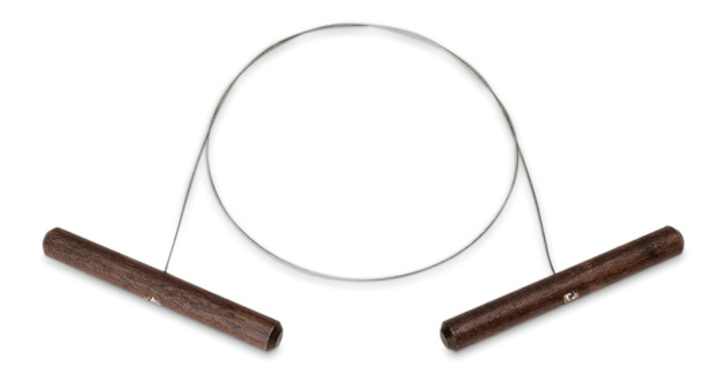
Wire cutters
When can glaze be applied?
After the first firing
What is the name of the “oven” the clay goes in
Kiln
What day will we be doing the “Cleaning Wheel”
Thursdays
This method involves laying thin ropes of clay on top of each other than smoothing them to create a flowing piece of pottery.
Coil method
What stage does the clay have to reach first before it is recycled?
Bone Dry
What is the name of this tool? 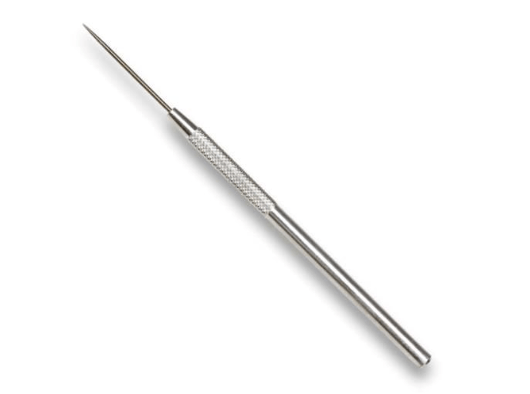
Needle tool
What are three different ways glaze can be applied to bisqueware?
Brushing, dipping and sponging
What are two major reasons clay explodes in the kiln?
Clay is still wet
“Bubbles” in clay
Summative assessments refer to…
Major projects
Joining together leather hard sheets of clay to create an angular piece such as a box.
Slab method
After what stage can clay no longer be recycled?
After it is fired once and it becomes “bisqueware”
What is the name of this tool And what is its purpose? 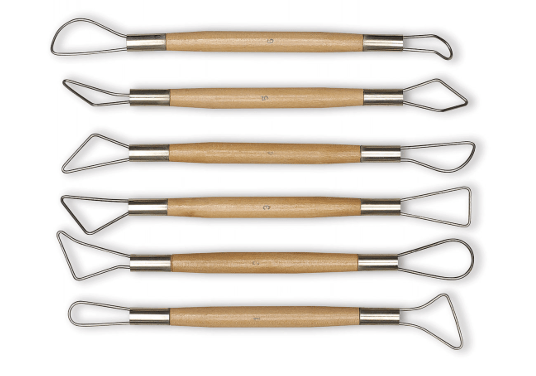
Loop tool.
Essential for trimming off or carving clay surfaces. Important for hollowing out thick areas of forms for even and faster drying; Good for carving textures and designs. Also called ribbon tools or carving tools.
What are two differences between underglaze and glaze?
Underglaze can go on before and after the first firing
Underglaze is not food safe - Glaze is
Underglaze can be mixed together - glaze cannot
(2 part)
What is ceramic work called after is been fired once?
What is the name after its been glazed and then fired again?
Bisquware
Glazeware
Name two things that will be graded as a “Studio Habits” Grade
- Sketchbook
- Glow and Grow
-Artist study warm ups
- Classwork
Project proposals
Reflections
Notes / Visual guides
- Cleaning
A method of working clay to eliminate air pockets and give it a uniform consistency before it is thrown on a wheel or shaped by hand.
Wedging
This is the stage between leatherhard and “wet” clay
Soft leather-hard
What is the name of these tools and what is their purpose?
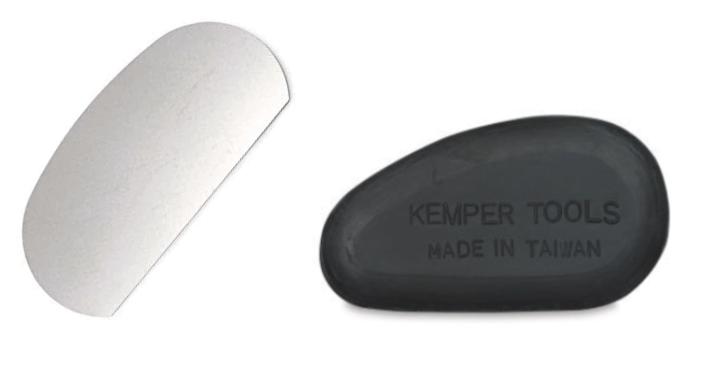
Also called smoothers, scrapers, or kidneys; Important for smoothing clay surfaces, COMPRESSING areas of the clay and all the particles (to reduce & stop cracking in drying), and for scraping clay chunks away. Important with slab building for smoothing slabs.
What is Scraffito?
“to scratch” in italian; a decorating technique produced by applying layers of color (underglazes) to leather hard pottery and then scratching off parts of the layer(s) to create contrasting images, patterns and texture and reveal the clay color underneath.
What are the 3 precautions can be taken to prevent your work from exploding in the kiln
Let dry completely
Hollow out thick forms
Wedge clay thoroughly
You are done using this clay; depending on the stage of the clay where do each of them go? (slip, Plastic clay, Leather hard, bone dry)
Slip - Slip bucket
Plastic - Back in clay bag
Leather hard - Recycle bin
Bone dry - Recycle bin
Using the electric wheel to form perfectly symmetrical pottery.
Throwing
This state of clay consists of multiple stages. This is when the clay is pliable and can be shaped, molded and carved.
Greenware
What is the name of this tool?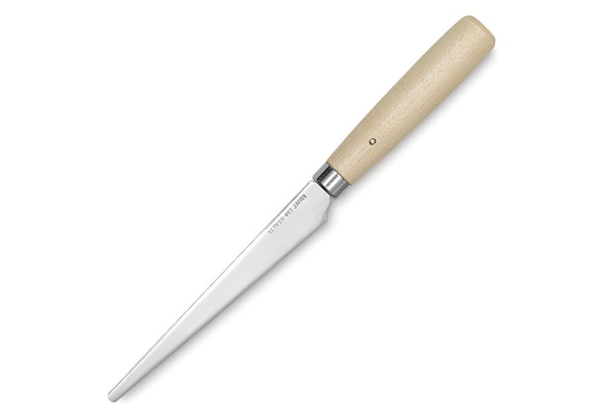
Felting Knife
At what temperature does glaze need to be heated to chemically change?
About 2000
What cone number do we fire our clay?
05
Whare are going to be the four stages of our “Artist Study Warmups”
Sketch
Analyze
Interpret
Evaluate